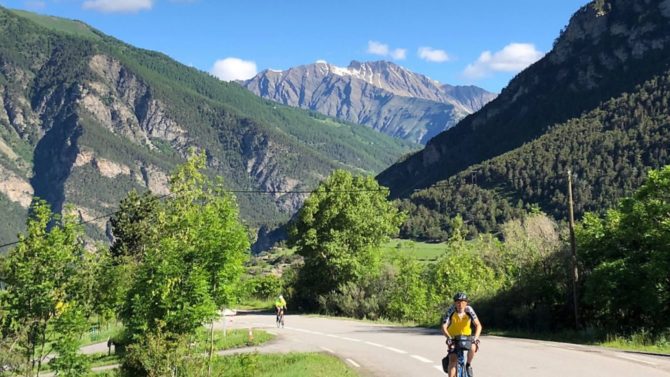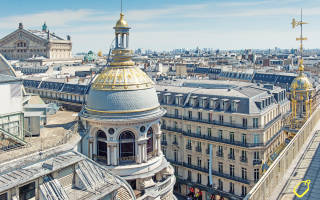Tips and tricks for cycling in France
We speak to Lesley Williams of Cicerone who has some essential advice for a cycling holiday in France

What essential items should all cyclists carry in their rucksack?
Assuming you are going on a cycle touring holiday, you will need to carry a number of essentials, but always aim to travel with as light a load as possible. You will need a pannier or panniers, lights and a reflective jacket if cycling at night, water bottles, a pump, spare tubes, a multi-tool, spanner for removing and reattaching pedals, puncture repair kit, tyre leavers, a first-aid kit and a bike lock. You could carry more, but these are the essentials that will get you to the next bike shop. For yourself, you will need a few high-energy snacks, a change of cycling clothing (top and padded shorts), including a long-sleeve option, waterproof jacket, a helmet (not currently compulsory) and cycling gloves (important to reduce the risk of soft tissue damage on long rides).
What extra equipment would people need for a longer cycling holiday?
For a longer trip the list is much the same, but if you are going to be going to remote areas you may want to include spare brake pads and pad spreaders, chain links and chain tool, lube and grease, spare spokes and spoke key.

What is the one thing people should know before cycling in France?
Transporting your bike to France can be a little more difficult than you might first imagine, so research different options carefully. Be prepared to pack your bike in a bike bag, and know how to reassemble it. There’s an excellent website related to all aspects of cycling in France that we would recommend: freewheelingfrance.com
Do you think it is better to cycle alone or as a group?
If you’re in a group you can share carrying some items such as the first-aid kit and other non bike-specific kit, but it’s all a question of preference. Some people feel it is easier to cycle at their own pace if they are on their own, while others prefer company to share the experience.
What is the best time of year to cycle in France?
It’s probably best to cycle during spring, summer and autumn. If you can avoid regions and times of year with high wind that is always going to make things easier.
Do you have any tips for keeping a bicycle secure when not riding (i.e. overnight)?
Get a good bike lock – a compromise on security and weight is up to you. Try to look for accommodation where secure bike storage is offered. If not, then make sure you attach your bike to something immovable, and remove panniers, saddle and any other items such as lights that are easily stolen.

What is a good place to cycle in France in the summer?
If you like the heat, you can cycle anywhere in summer. Cycling tends to be slightly cooler than walking as you generally have a little airflow to cool you.
Do you have any advice for those who want to cycle in the winter months?
Winter cycling can be very cold. Invest in the best socks, shoes and overshoes to keep your feet warm. Other clothing can include tights, thermal layers, insulated gloves and good waterproofs. Use a balaclava under your helmet, or a couple of buffs – one for the head and one for the neck.
What is an easy cycling route for a first timer?
In France, definitely the Canal du Midi. It takes around a week to cycle, with plentiful canalside bars and auberges to stop at! Do you enjoy cycling in France yourself?
Last June we rode the Route des Grandes Alpes, which was a challenge but a sensational experience. I now have my eye on the Loire, the Canal du Midi, and another ‘downhill’ river route following the Canal de la Garonne.
How many cycling guidebooks does Cicerone have based in France?
We have seven titles covering cycle touring along various routes in France, from the delightful and easy Canal du Midi through to more challenging rides such as the Rhone cycle route and the tempting Loire cycle route – which elegantly combines beautiful chateaux, fine wine and delicious food along its 1052km length. There are short and relatively easy routes, and longer, more challenging hilly routes too. As long as you choose something that is within your ability as a cyclist you will find a route and a guidebook that will suit you.
More from Cicerone…
Share to: Facebook Twitter LinkedIn Email






